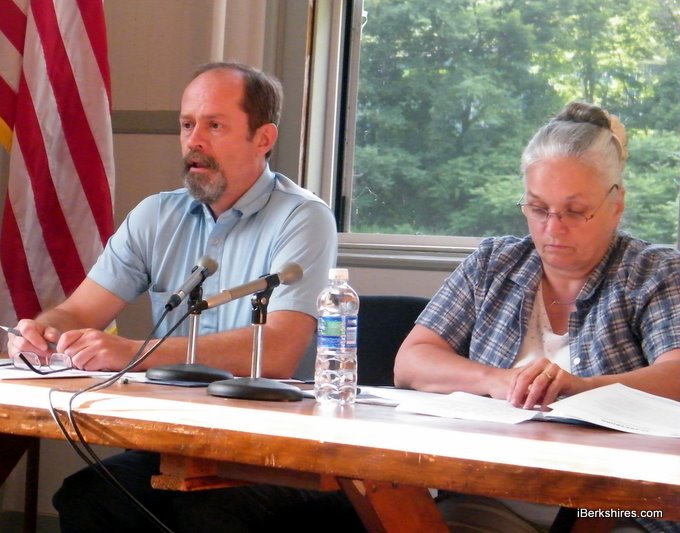Clarksburg Selectman Suggests Town Vote On Funding Dam Removal
 The Briggsville Dam has been designated a significant hazard by the state because one side has moved off its footings. |
During Wednesday night's Selectmen's meeting, McKinney said the current lack of funding toward the removal could have a "horrible impact on the community." The dam, which has been deemed a safety hazard by the state, was slated for removal this summer.
Because the funding is short, McKinney said the state could step in to finish the project and then stick the bill with Cascade School Supplies, the company that owns the dam. (The dam was built to power what was then the Strong-Hewat Woolen Mill.)
McKinney admitted that his stance has swung "180 degrees," referring to a meeting earlier this year when he said the town doesn't have enough money to help with the removal and, if it did, the funds would be better served in the school system.
On Wednesday, he expressed his fear that the Cascade mill could be in jeopardy if the state takes over the dam project.
"You can basically expect the mill to go out of business and to remain vacant and no longer pay property taxes," he said. "And then it's going to be a source for criminal activity and industrial decay in the center of town.
"As a community, we should discuss the ramifications of doing nothing."
Town Administrator Michael Canales stated that the current funding for the removal, which is being provided by various sources — including American Rivers, U.S. Fish and Wildlife and the federal Natural Resources Conservation Service — is short roughly $126,000. He said the town could also lose an additional $86,000 in grant money that is set to expire at the end of the summer.
 Selectman Carl McKinney, left, and Chairwoman Debra LeFave. |
To take money out of the stabilization fund requires a 2/3 vote at town meeting. Canales said there is approximately $315,000 currently in the stabilization fund.
One of the three Selectmen, Lily Kuzia, was absent, which prompted McKinney to hold off on making a motion for a town meeting. He would like to continue the discussion at the next Selectmen's meeting on Wednesday, July 28.
The town has made repeated efforts to draw in funds from other sources, according to Canales. He said it's "very unlikely" the $126,000 deficit will be filled by outside grants, at least in the near future.
"We've gone to our senators, we've gone to federal senators, we've gone to state and federal organizations, " he said. "Right now, things are tight. Things are tough."
McKinney said there isn't enough time to be inactive, and that presenting the issue to the town voters is a viable option.
"Let the people decide because it's their community," he said. "I really don't want to sit on the side and, through my office that I hold, make a decision on behalf of the people, and I question whether it's the right decision to do nothing. If nothing is done, it's going to come and bite us in the behind, and then we'll have a world of problems in the future."















